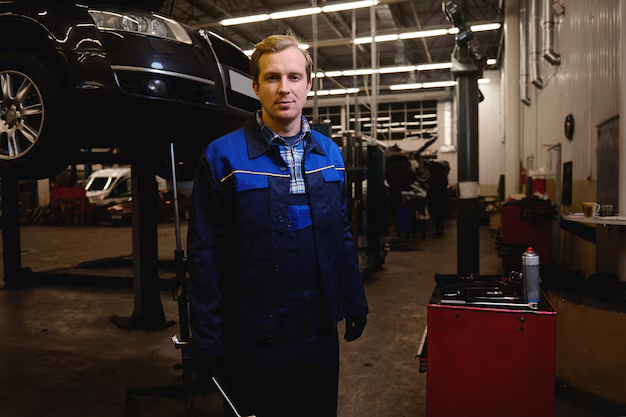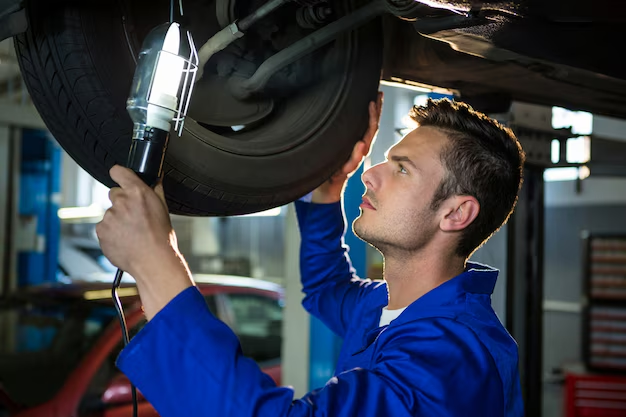
5 Signs Your Brakes Need Immediate Attention
Brakes are one of the most important safety systems in your vehicle. Whether you’re driving through downtown Airdrie or heading out on Alberta’s open highways, the ability to stop quickly and safely can make the difference between a normal day and a serious accident. Yet, despite their importance, brake problems are often ignored until it’s too late.
At Tools in Motion in Airdrie, we’ve seen it all—from drivers who come in at the first hint of trouble to those who wait until their brake pedal hits the floor. If you fall into the latter category, this article is especially for you. Here are five telltale signs your brakes need immediate attention, and why ignoring them can cost you more than just a repair bill.

1. You Hear Squeaky or Grinding Noises
Your car’s brake system is designed to give you some pretty clear audio cues when it’s time to pay attention. The most common? That unmistakable, high-pitched squeal.
This squealing sound usually means your brake pads are worn down. Most brake pads have a built-in wear indicator—a small metal tab that scrapes against the rotor when the pad gets too thin. It’s like a built-in alert system, telling you it’s time for a brake pad replacement before things get dangerous.
If you ignore the squeal long enough, the sound will evolve into something worse: a grinding noise. This usually means the pads are completely worn out, and the metal backing plate is now pressing directly against the brake rotor. At this point, you’re not just looking at new pads—you’ll likely need new rotors too.
If you’re hearing squeaky brakes every time you stop, don’t wait. It’s your car’s way of telling you something is wrong.
2. Your Brake Pedal Feels “Soft” or Spongy
A healthy brake pedal should feel firm and responsive. You press it, and the car slows down or stops quickly. But if your pedal suddenly feels mushy, spongy, or sinks too easily to the floor, it’s a serious red flag.
A soft pedal could be caused by several issues:
- Air in the brake lines
- Worn-out brake fluid
- A leak in the brake system
- A failing master cylinder
Brake fluid plays a vital role in transferring the pressure from your foot to the brake calipers. If there’s air or contamination in the fluid, or if it’s leaking out somewhere, your stopping power can be compromised in an instant.
If your brake pedal isn’t giving you that firm, responsive feel, don’t risk it. This is a job for professionals—and fast.
3. Your Car Pulls to One Side When Braking
Ever notice your car drifting to one side when you hit the brakes? That’s not just annoying—it’s dangerous. This behavior usually means there’s uneven wear or a malfunction within your braking system.
Some common culprits include:
- A stuck caliper
- Uneven brake pad wear
- A collapsed brake hose
- Contaminated brake fluid
When one brake is working harder than the other, it causes the vehicle to veer or “pull” to one side. This kind of imbalance can make stopping difficult and unpredictable, especially in emergency situations or on slippery roads.
And here’s the thing—this issue won’t resolve on its own. In fact, it usually gets worse over time and can affect your suspension and alignment as well.
If your car’s not stopping in a straight line, it’s time to bring it into Tools in Motion for a comprehensive brake inspection.
4. You Feel Vibrations When Braking
Feeling vibrations or pulsations through the brake pedal—or worse, through the steering wheel—when you stop? That’s a strong indicator that your brake rotors are warped.
Rotors are the flat, disc-shaped components that your brake pads clamp onto. Over time, especially with aggressive or frequent braking, they can become uneven due to heat and wear. When this happens, the brake pads can’t grip them smoothly, leading to vibrations that you feel in the cabin.
Warped rotors not only make for an unpleasant ride, but they can also increase your stopping distance and decrease your ability to brake consistently.
At Tools in Motion, we can resurface or replace your rotors depending on the extent of the damage—restoring your ride to a smooth, safe stop every time.
5. You See a Dashboard Brake Warning Light
Modern vehicles are packed with sensors that help you keep an eye on essential systems—and the brakes are no exception. If your brake warning light appears on your dashboard, it’s your vehicle’s way of saying: “Something’s wrong, fix it now.”
The brake warning light can be triggered by various issues, including:
- Low brake fluid levels
- A faulty ABS sensor
- Parking brake engaged
- Worn brake pads
- Problems with the master cylinder
This light isn’t just a suggestion—it’s a call to action. Don’t wait for other symptoms to appear. If your dashboard brake light is glowing, schedule a diagnostic check as soon as possible.
At Tools in Motion, we specialize in advanced auto diagnostics and electrical troubleshooting, so if there’s a hidden issue causing your brake warning light to come on, we’ll find it.

Don’t Wait Until It’s Too Late
Here’s the bottom line: your brakes are your first line of defense on the road. The signs of brake trouble—whether it’s squeaky brakes, a spongy pedal, or a warning light—are not things to put off. The longer you wait, the more expensive and dangerous the situation can become.
Think of it this way: replacing your brake pads in Vernon BC or anywhere in Alberta might cost a few hundred dollars. But ignoring the issue until your rotors, calipers, or even ABS system fail? That’s a repair bill (and a risk) that could climb into the thousands—not to mention the risk to your safety and everyone else on the road.
At Tools in Motion in Airdrie, we’ve been helping local drivers stay safe since 2008. As a trusted, family-owned shop, we don’t just swap out parts—we diagnose the real issue, explain it clearly, and fix it right the first time. Our advanced tools and specialized expertise in late-model vehicles mean we can handle the complex jobs that other shops might miss.
So if your car is showing any of the warning signs listed above, don’t wait. Bring it in and let our team of skilled technicians take a look.
Your safety is our priority.
Book your brake inspection today at Tools in Motion and get back on the road with confidence. Call us or request an appointment online—your car (and your peace of mind) will thank you.
